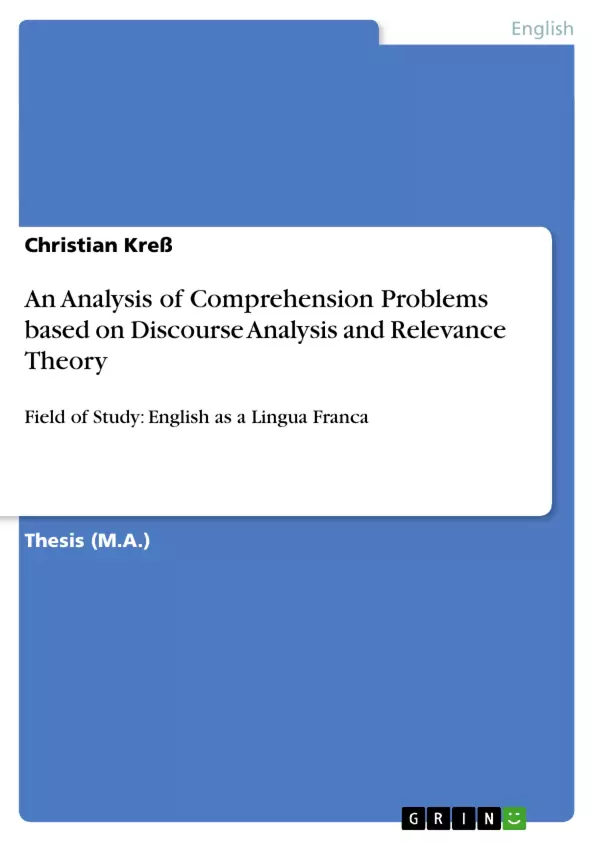It is a linguistic reality of today’s world that English has become a lingua franca for the world. It is the global language of economy, technology, international politics, and the internet. In roughly 80% of communication in English, no native speakers are involved. As Smith/Nelson (1985) state: “Native speakers are no longer the sole judges of what is intelligible in English” (p. 1). Only recently, scholars in applied linguistics have conducted research on the characteristics of the use of ELF (English as a lingua franca) in interactions between non-native speakers of English. For the purpose of ELF research, large corpora such as VOICE (Vienna-Oxford International Corpus of English) have been built up, containing data from naturally occurring ELF exchanges. Also at the University of Tübingen a corpus of this kind is currently being compiled: the Tübingen Midwestern Corpus, which contains group discussions on a given economic topic. Most of the discussion participants are international students with different first language backgrounds. Some discussions also include a native speaker of English. There has to date not been a uniform and systematic approach regarding the analysis of comprehension problems in these Midwestern discussions. In this thesis I will design a structured set of questions for a standardized retrospective interview that serves to efficiently analyse comprehension problems. As the investigation of comprehension problems must go beyond an analysis of purely linguistic features of an interaction (syntax, morphology, phonology), situational circumstances in which the interaction takes place will also be taken into account. These standardized retrospective interview questions will be applied to four group discussions taken from the Midwestern corpus. For the analysis of the data collected from the retrospective interviews with participants from these discussions, Relevance Theory and discourse analysis are going to be applied.
Inhaltsverzeichnis (Table of Contents)
- Midwestern
- Discussion
- Midwestern Discussion: Participant Questionnaire
Zielsetzung und Themenschwerpunkte (Objectives and Key Themes)
This discussion aims to explore a real-world business dilemma faced by Midwestern, a company about to launch an IPO. The scenario involves faulty soldering in intercom units, potentially leading to malfunctioning baby monitors, with the company unaware of the extent of the problem. Participants must work together to identify the risks, weigh potential solutions, and recommend a course of action.
- Ethical considerations in product safety and consumer trust
- Balancing financial implications with ethical responsibilities
- The impact of public perception on a company's reputation and IPO
- Assessing risks and potential consequences of various solutions
- The importance of communication and collaboration with partners
Zusammenfassung der Kapitel (Chapter Summaries)
The discussion begins with the group identifying the problem: faulty soldering in intercom units that could lead to malfunctioning baby monitors. Initially, there are differing opinions on the severity of the problem and the level of responsibility Midwestern has. The conversation then moves to discuss potential solutions, including a recall, repairs, and public announcements. The participants debate the cost, effectiveness, and reputational impact of each option. They also explore whether Midwestern should postpone its upcoming IPO due to the situation.
Schlüsselwörter (Keywords)
The case study of Midwestern highlights key terms related to business ethics, product liability, public perception, and IPOs. It centers on concepts like quality control, recall, public announcement, reputational damage, and the balance between financial gain and social responsibility. These themes are intertwined with real-world considerations like product safety, consumer trust, and the importance of proactive measures in crisis situations.
- Citation du texte
- Christian Kreß (Auteur), 2010, An Analysis of Comprehension Problems based on Discourse Analysis and Relevance Theory, Munich, GRIN Verlag, https://www.grin.com/document/175623



